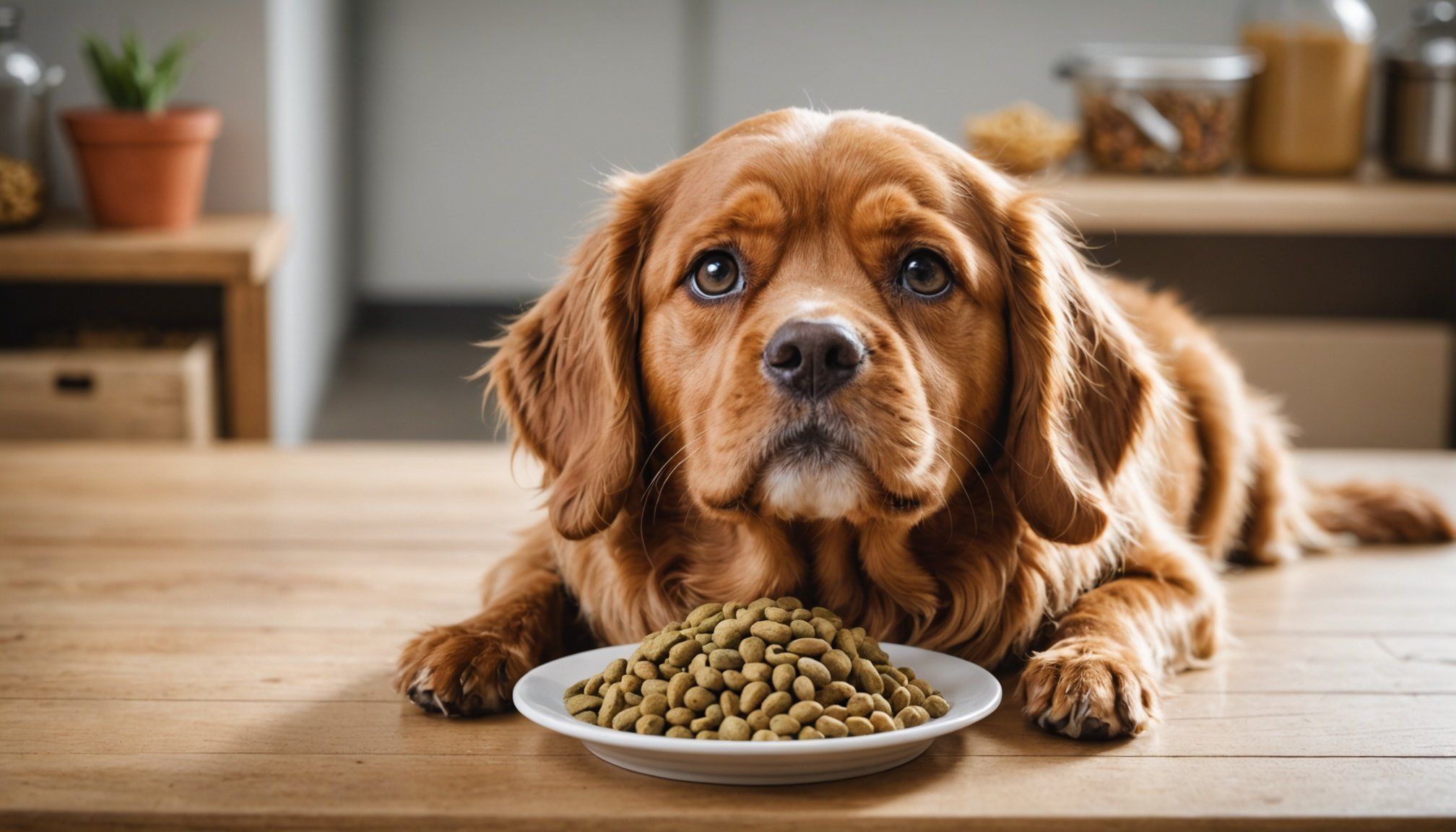Overview of Essential Pet Diets
Essential pet nutrition encompasses a range of dietary considerations vital for maintaining your pet’s health. Proper pet diet importance cannot be overstated, as a balanced nutrition plan is crucial for their overall well-being and longevity. Pets require a diversity of nutrients which differ significantly depending on the species and age group.
Animals benefit from structured nutritional plans for pets that cater to their specific dietary needs. These plans ensure that pets receive essential proteins, vitamins, and minerals to support their growth, immune system, and energy levels. For instance, some pets may require specific diets due to allergic conditions or health issues, making tailored nutritional plans essential.
In parallel : Essential Tips for Effective Pet Training: What Every Owner Should Know
Different pet species have unique dietary requirements. Common types of essential diets include high-protein diets for dogs and taurine-rich diets for cats. Furthermore, structured diets can prevent common health issues like obesity or nutrient deficiencies, maximising your pet’s quality of life.
Benefits of adopting these tailored diets include improved coat condition, enhanced energy levels, and a stronger immune system. By understanding and implementing these dietary insights, pet owners can contribute positively to their pets’ health, ensuring they live happy and healthy lives.
Additional reading : Nourishing Your Pets: Tips to Keep Them Healthy and Ahead of the Curve
Nutritional Requirements for Dogs
Proper dog nutrition is essential for maintaining optimal health and well-being. Canine dietary needs vary depending on factors such as age, breed, and activity level. Puppies, for instance, require more protein and calories to support growth, while adult dogs need balanced meals to maintain energy and health.
Dog food guidelines suggest key nutrients to include are high-quality proteins, fats, vitamins, and minerals. Proteins aid muscle development and energy, while fats serve as a concentrated energy source. Vitamins and minerals are crucial for immune function and overall vitality.
An older dog might require lower calorie diets to prevent weight gain, and certain breeds can be prone to specific conditions like hip dysplasia, thus benefiting from joint-supporting nutrients.
Portion control is vital to avoid obesity. Measuring food and understanding recommended daily servings based on weight can help maintain a healthy dog. Moreover, offering diverse foods that meet these guidelines supports their health. Always consult a veterinarian to tailor a diet fitting your dog’s specific needs, ensuring it aligns with their health and lifestyle.
Nutritional Requirements for Cats
Cat nutrition is distinct due to their unique dietary needs. Felines rely heavily on taurine, an essential nutrient crucial for their vision, digestion, and heart health. Cats lack the ability to synthesise taurine naturally, making it vital in their diet.
Understanding the difference in needs between indoor and outdoor cats is critical. Indoor cats typically have lower energy requirements due to less physical activity. Conversely, outdoor cats might require higher caloric intake to sustain their active lifestyle.
Feline dietary needs must also include adequate protein levels, with animal sources such as chicken, fish, and beef being highly recommended. In addition, omega-3 and omega-6 fatty acids support skin and coat health. Selecting the right cat food guidelines helps ensure optimal feline well-being.
To maintain a healthy diet, practical feeding strategies involve portion control and timing. Feeding cats at regular intervals prevents overeating and obesity. Consult with a veterinarian to tailor a diet that meets their specific lifestyle and health needs. Transitioning diets should be done gradually to avoid digestive upsets and ensure a smooth adjustment to new foods.
Specialized Diets for Other Pets
Understanding the exotic pet diets requires thorough knowledge of the distinct dietary needs for birds and reptiles, along with small mammals like rabbits and guinea pigs. Each species demands a tailored nutritional approach. A generic diet can pose risks, leading to deficiencies or health complications.
Small mammals often require high-fibre diets, emphasizing hay and leafy greens to support their digestive systems. Birds need varied diets rich in seeds, fresh fruits, and vegetables, while reptiles’ nutritional plans often include live insects and specially formulated reptile pellets for balance.
Exotic pet diets also focus on providing species-specific vitamins and minerals crucial for optimal health. For instance, calcium is vital for reptiles, preventing conditions such as metabolic bone disease. Without the proper balance, pets may suffer from long-term health impacts.
Sample meal plans for common exotic pets highlight their unique needs. For example, a balanced meal for a parrot might include seeds, berries, and slices of apple. Crafting these meals involves precise measuring and ingredient selection to ensure nutritional completeness. Thus, dedicating attention to species-specific requirements ensures pets enjoy a fulfilling lifestyle while minimising health risks.
Key Ingredients in Essential Pet Diets
Understanding essential pet food ingredients is vital for pet owners aiming to ensure their pets consume a nutritious diet. Quality protein sources like chicken and fish support muscle growth and energy needs. It’s crucial for maintaining a strong, healthy body, particularly in active pets. Fats, an essential source of energy, contribute to healthier skin and shiny coats.
Carbohydrates provide vital energy that fuels daily activities. Whole grains, like brown rice, and body-efficient legumes are typical choices. They must be balanced with fats and proteins. Beneficial nutrients including vitamins and minerals play a role in immunity and metabolic functions. Vitamin E and omega-3 fatty acids, for instance, enhance immunity and promote neural health.
Avoiding harmful ingredients is equally significant. Preservatives and artificial colours can be detrimental to health. Pet owners should scrutinize ingredient labels, checking for natural, non-GMO options that align with their pet’s health demands. By focusing on these quality pet food components, owners can foster improved health outcomes for their pets, ensuring a nourishing and long-lasting diet.
Expert Insights on Pet Nutrition
Pet care experts agree on the critical importance of tailoring diets to enhance pet health, supported by robust pet nutrition research. Veterinarians frequently emphasise the need for balanced and species-appropriate nutrients, urging pet owners to seek veterinary dietary recommendations.
Key research findings demonstrate that diet directly influences longevity and vitality, underscoring the merits of consulting animal nutrition expertise. For example, evidence shows targeted nutrition can prevent chronic illnesses, reflecting the health benefits of consuming well-rounded meal plans high in essential nutrients.
Renowned veterinarians stress individualised diets. Health assessments and specialist guidance ensure pets thrive on optimal diets suited to their unique needs. Collaborating with a pet nutritionist can fine-tune a pet’s dietary plan, incorporating life stage, weight, and any health conditions.
Impartial perspectives from veterinary bodies shed light on long-term benefits, asserting research-aligned nutrition promotes wellbeing. Pet owners are encouraged to pursue these expert insights, ensuring their furry friends receive a diet that supports their healthiest life possible, steeped in well-researched, practical nutritional advice.
Sample Meal Plans for Various Pets
Crafting a balanced diet for your pet is crucial for their health and vitality. Pet meal planning should be tailored to the specific needs of dogs, cats, and other animals. When developing custom pet diets, it is important to consider each species’ nutritional requirements.
For dogs, a balanced meal might include lean protein like chicken, coupled with cooked vegetables and brown rice. Cats require taurine-rich meat such as fish or beef, supplemented with small portions of cooked egg or certain vegetables for additional nutrients.
Habitual pet meal planning involves maintaining a consistent schedule and portion size. By including varied, nutritious foods, pets receive the comprehensive diets they need.
A simple recipe for small mammals may comprise fresh hay and leafy greens, while birds benefit from seeds and fruits. Transitioning to new diets or recipes needs to be done gradually to prevent digestive issues. Changing a pet’s diet should involve consultation with a veterinarian to ensure it aligns with their balanced diet examples and specific health requirements. By adhering to these guidelines, pet owners can provide their companions with nourishing, enjoyable meals that support their well-being.
The Future of Pet Nutrition
With evolving trends in pet food, the landscape of pet nutrition is transforming. Innovative pet diets such as raw diets and plant-based foods are emerging, appealing to health-conscious pet owners. These diets focus on natural ingredients, aiming to enhance pet health and cater to specific dietary needs.
Ongoing research in pet nutrition is crucial as it uncovers insights into optimal diet formulation. Studies suggest a focus on nutrient absorption and gut health, guiding improved food processing techniques. Such research informs the development of nutritionally complete meals, tailored to meet the diverse needs of animals.
Technology plays a pivotal role in this advancement. From smart feeders to data-driven meal customisation, tech innovations offer personalised meal prep solutions. Apps and devices can recommend optimal diets based on pets’ health metrics, ensuring precise nutrient delivery.
This future vision aims to support pet vitality and longevity, empowering owners to make informed feeding decisions. As we witness these technological advancements, the goal is to offer pets healthier, more sustainable diet options, paving the way for a new era of animal nutrition.











